“How do I know if my birds are sick?” is a common question that we hear from backyard chicken keepers. Our answer is pretty simple: your birds will tell you. Not in the literal sense, of course, but birds have unique ways of letting you know that something is amiss. Are you ready for the scoop on one of the most reliable indicators of bird health?
💩
Poop. That’s right, we're giving you the scoop on backyard chicken poop.
Litter, droppings, feces, poop—whatever you call it, we know that it’s no one’s favorite thing to deal with. And because of that, folks just don’t deal with it most of the time.
We spend a lot of time talking about the inputs for raising chickens: feed, probiotics, vitamins and more. But now it’s time to cover the output (poop!) and how it changes when your birds aren’t functioning at their best.
Digestion 101
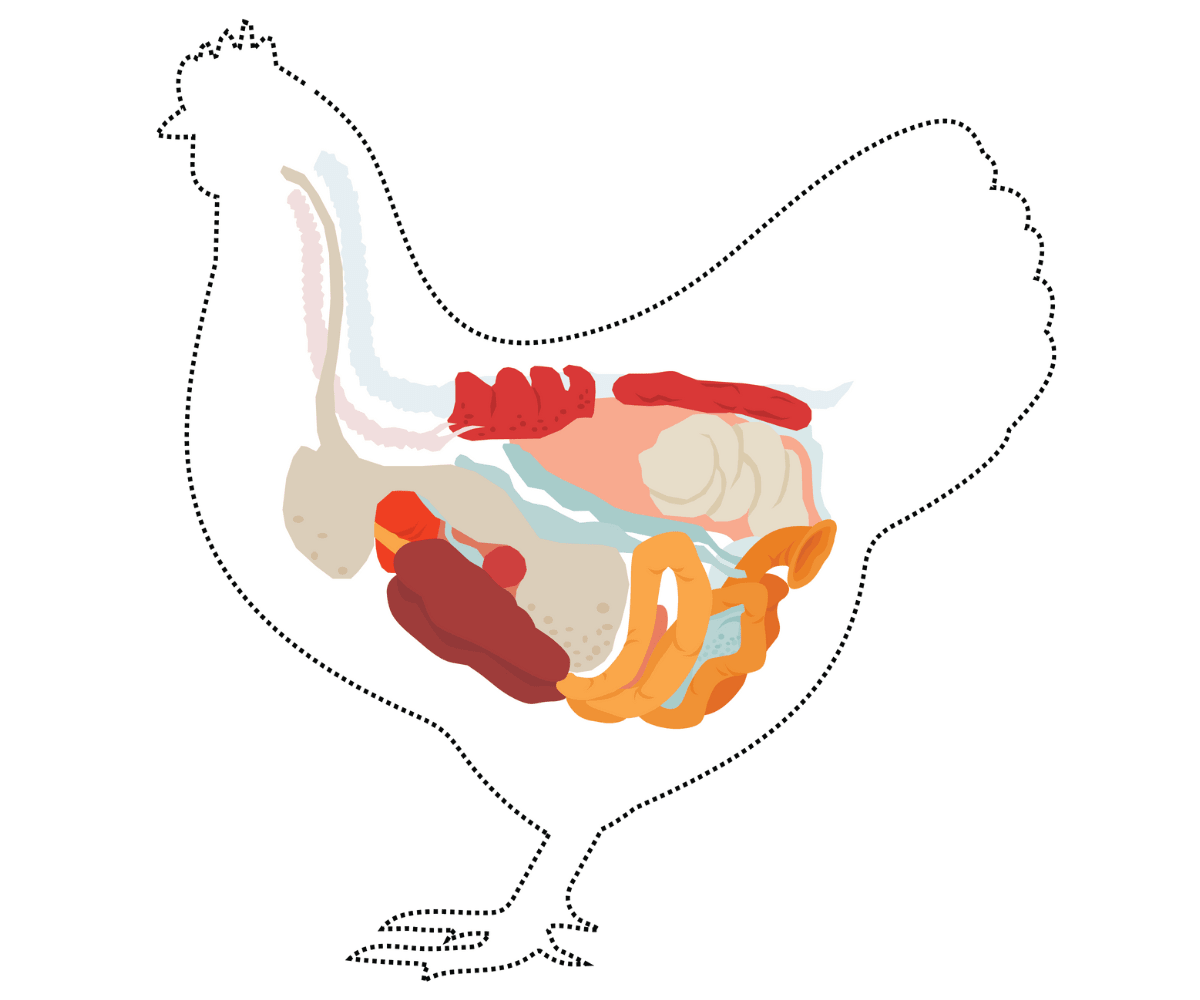
To fully understand the end of the cycle, we need to understand the digestive process in your birds from start to finish. When chickens eat and drink, the food and water go from the beak into the esophagus, which carries it down to the crop. Food begins to soften in the crop before it travels to the proventriculus, an organ that uses enzymes to break down food before it enters the gizzard.
The gizzard is a more muscular organ that uses small stones to grind food into a paste, which can be more readily processed in the intestine. A chicken's intestine has two small, pouch-like places called ceca. Bacteria in these pouches help digest particularly woody, fibrous or tough bits of food that the chicken ingests. The food takes its time in this section of the bird, so the bird can extract as much of the nutrients as possible. At this point, the bird should have absorbed all the good it will from the feed. It’s time to get rid of what it doesn’t need.
The waste travels to the cloaca, which is Latin for "common sewer." This is fitting because in birds, all forms of waste are expelled at once in one dropping. This is what you see all over your coop, and it can be the key to knowing the true health of your birds.
Normal Chicken Droppings
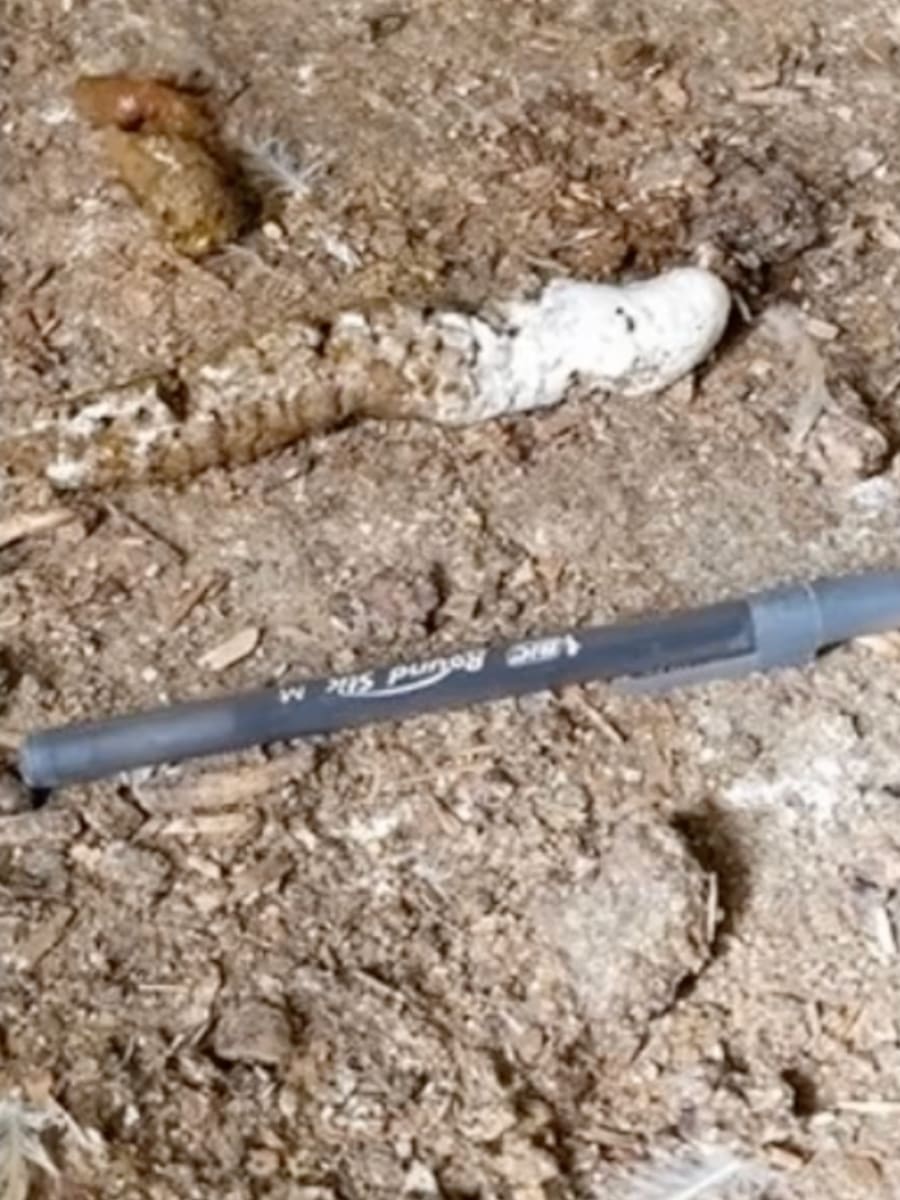
For comparison's sake, let's start with healthy chicken poop.
Regular Chicken Poop
In healthy backyard chickens, you will see compact tubular droppings that are tan to brown in color. If your birds are foraging, there may be a green tint too, which is perfectly normal.
There should also be a "white cap." A white cap consists of urates (uric acid), which are a byproduct of protein metabolism—birds converting feed into energy. In normal chicken poop, this thin white layer should cover about a third to half of the droppings.
Cecal Poop
Another normal type of chicken poop is called cecal poop. Birds produce cecal poop several times a day, and it is typically thicker and stickier than regular poop. While it looks different, this is no cause for alarm. Cecal droppings are actually a good sign that the chicken's digestive tract is functioning properly.
Abnormal Chicken Droppings
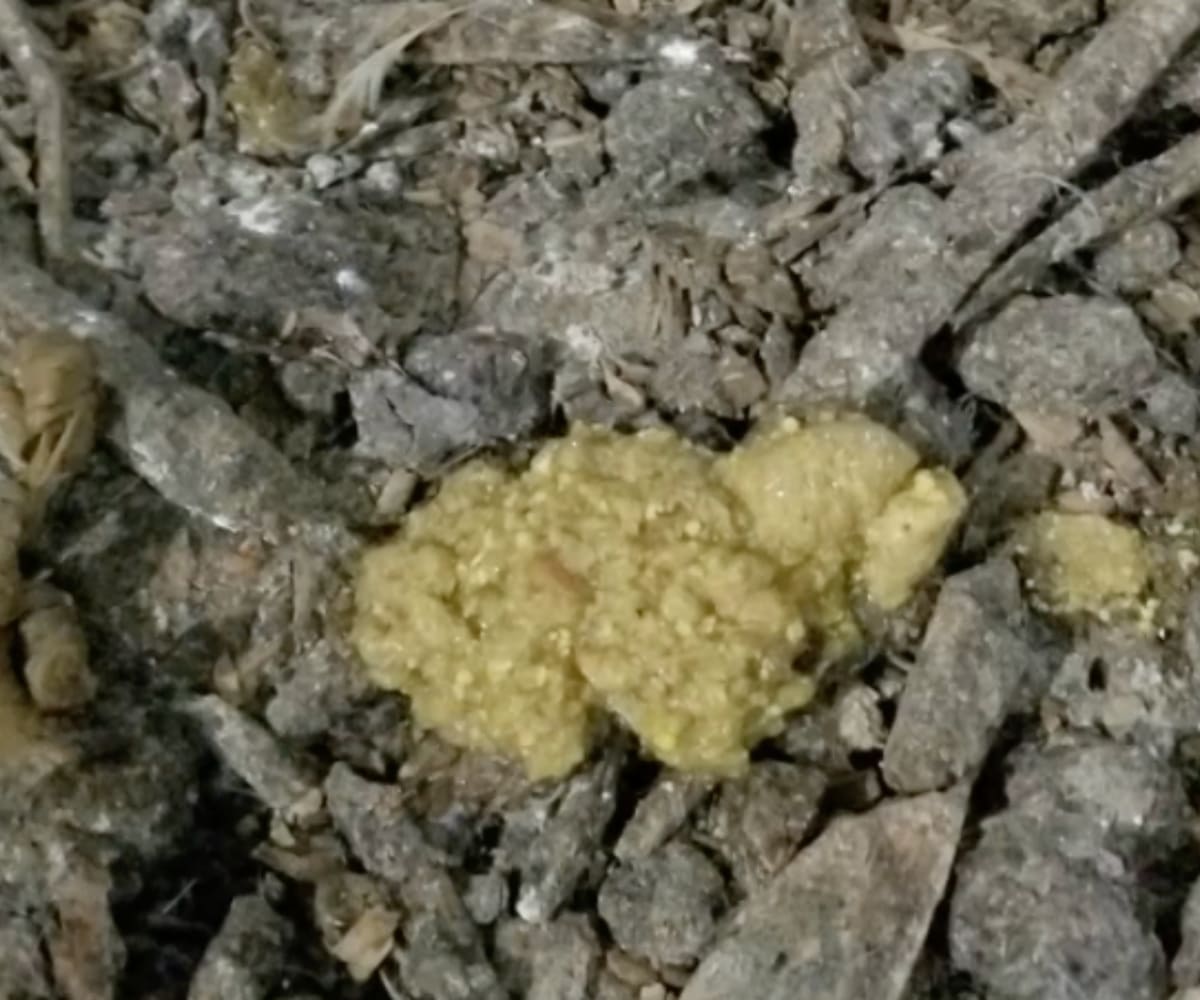
Now that we've covered the basics of normal chicken droppings, it'll be a little easier to notice what's abnormal. Abnormal droppings can be caused by brooding, illnesses and environmental factors, and it's important to be able to identify them.
Broody Poop
One of the most common and least concerning abnormalities is called broody poop. When your hen starts to brood, she will spend extra time in her nest box. But like the lady she is, she would never want to soil her nest. So, she waits to go! You might notice large droppings with little to no white cap, soft stool or excessive odor. All of this is completely normal if you have a broody hen.
Bloody Stool
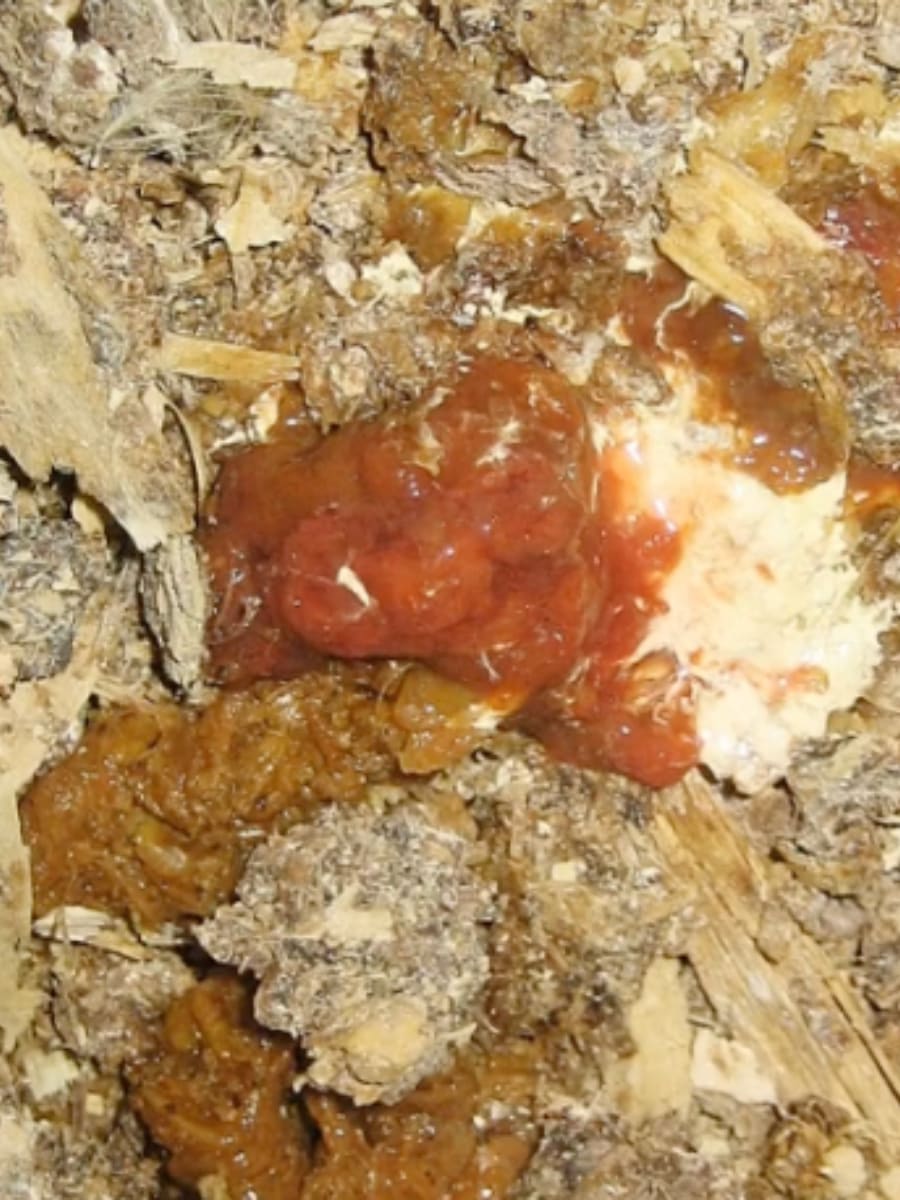
Some kinds of chicken poo can give you early indications of specific infections. Take bloody diarrhea for instance. This can be caused by anything that damages the inside of the intestines like bacterial infections or worms, but the most common cause is coccidiosis.
Cocci causes damage to the lining of different areas of the chicken's digestive tract, which then results in malabsorption and internal bleeding—hence, the diarrhea and the blood. Cocci is also a common reason for excess mucus in the stool. This happens as the bird’s gut attempts to protect itself from the cocci organisms by encasing them in mucus or coating the intestinal lining to prevent damage. Other causes of excess mucus include more simple things like overeating or undereating.
Foamy Poop
Foamy poop can just mean that your hen ate a little too much protein that day, but if it persists for more than a day or changes color, this could indicate worms or a bacterial infection—specifically Salmonella. Feces infected with Salmonella is often tinted yellow. If you notice foamy yellow poop, you may need to consider antibiotic intervention to get rid of the bacteria.
Environmental Factors
Environmental conditions that cause stress, such as excessive heat, long periods of rain or intense cold, can also cause changes in digestion and affect your birds' poop. If this is the case, it's important to make changes to help your birds deal with those stressors to keep them healthy. If it's too warm, increase airflow with fans, and if it's too cold, add a heat lamp to your coop space. Simple interventions can make a huge difference!
How to Boost Bird Health
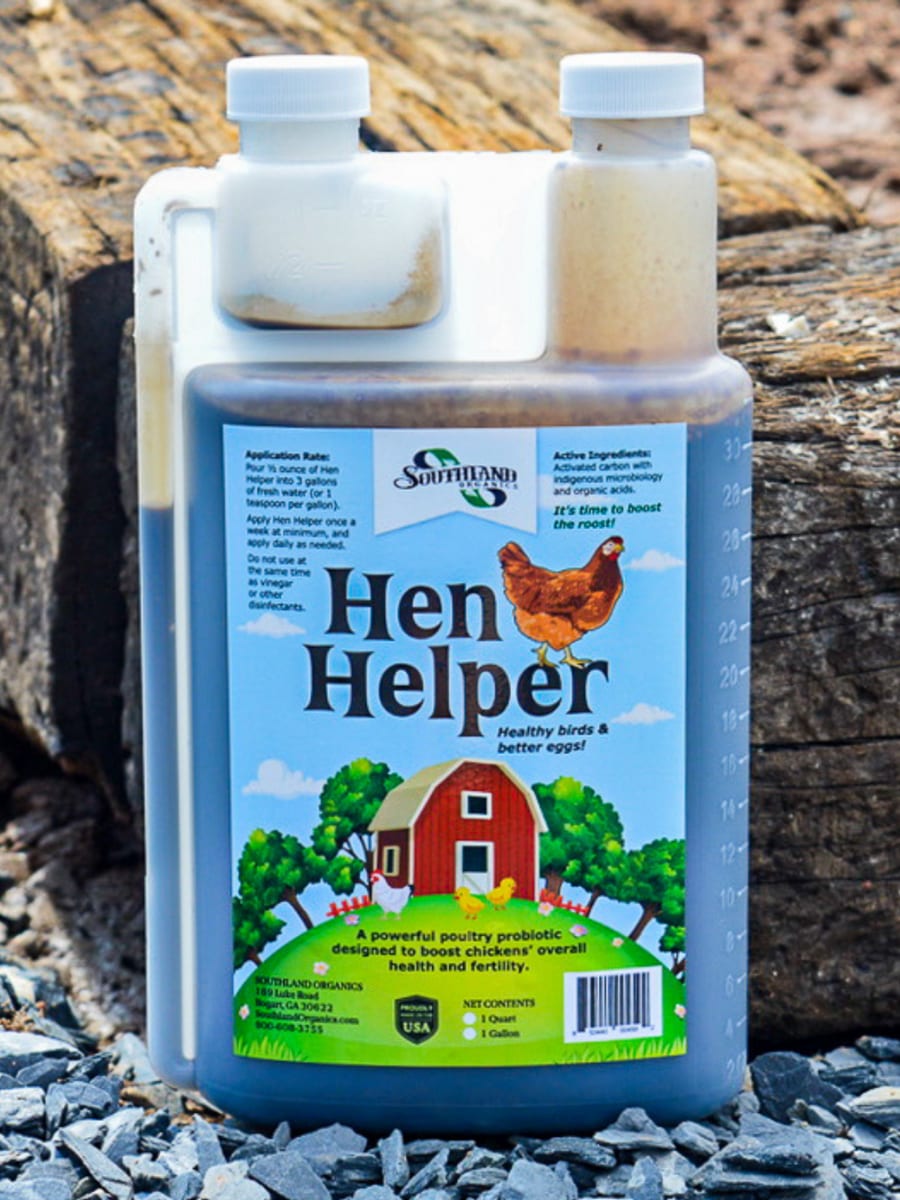
In cases of mild digestive upset and even some bacterial presence, probiotics like Hen Helper and Big Ole Bird can be incredibly helpful in correcting chicken digestion. For clearing mucus accumulation, probiotics can be helpful as well as apple cider vinegar supplements like Mother Load.
Diarrhea in chickens? When birds have any kind of diarrhea, the most important thing is hydration, hydration, hydration. It's so important to provide plenty of clean drinking water as well as an electrolyte solution, if possible, to make sure that any fluid lost during the diarrhea episode is replaced as quickly as possible.
Monitor Your Chickens' Poop
It's always important to recognize the ways that birds are able to communicate with us. One simple and consistent way to tell how they're feeling is to pay attention to their poop—which I'm sure you're very excited about! We hope this scoop on poop can help you recognize the differences between healthy and unhealthy poop and react accordingly.
Contact Us
If you have any questions, feel free to contact us at [email protected] or 800-608-3755. Keep up with us on social media @SouthlandOrganics.








